Globes
As a reproduction of the earth or the skies in a small format, globes have been around since the 1st century BC. Today, there is something for everyone among the multitude of different types of globes.
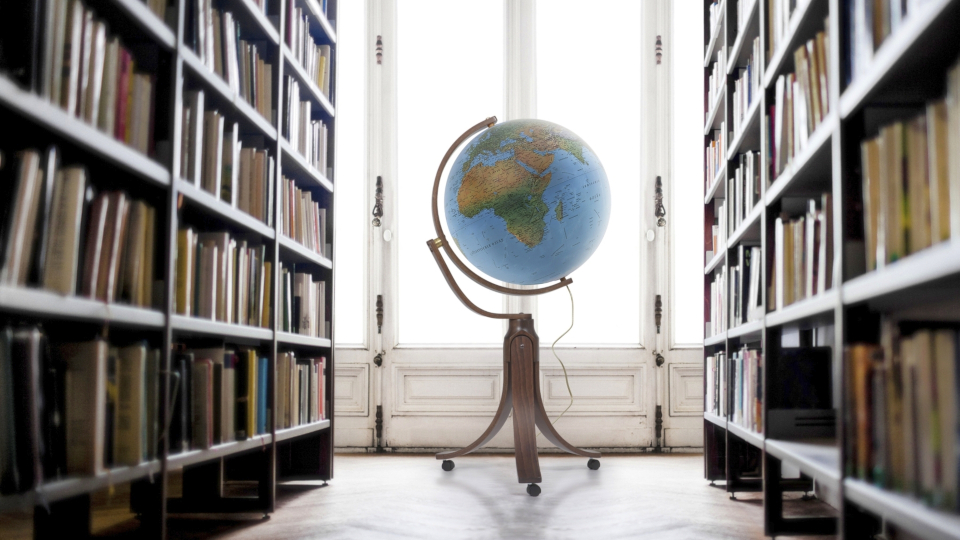
What is a globe?
The globe (from Latin) is a scaled representation of the Earth or celestial sphere (respectively globe, celestial globe) or of another celestial body (e.g. a Moon globe). Spherical representations of the heavens and Earth have been made since the 1st century BC. The development of the globes we know today started in Nuremberg, Germany, where Martin Behaim created the oldest globe, his Erdapfel or earth apple, in 1492. There is a huge variety of different globes available in different forms. Basically, there are two main types of globes. The most common is the globe of the Earth or terrestrial globe, which we have all come into contact with at some point. The second type is the celestial globe. In contrast to a terrestrial globe, this does not represent the Earth’s land masses, but instead shows the constellations and fixed stars as well as moons and other planets.
What should I look for when choosing a globe?
A illuminated globe can display two different map images; the first in an unlit state, the second in an illuminated state.
We distinguish between two types of globes:
- Table-top globes (for desks or shelves)
- Foot-stand globes (globe that stand on the floor)
Our globes are basically divided into three different design styles:
- Classic & elegant - realistic colour representation of the earth's surface with shading
- Modern & futuristic - the oceans are black or transparent, all countries are monochrome, perhaps the globe’s foot or meridian are uniquely designed
- Rustic & natural - in the style of ancient maps with parchment-coloured oceans, countries with outlined borders, wind roses, sea monsters ...
You can select the style directly from the menu on the left.
The maps can show the various countries (political map), the mountains and valleys (physical map) or the forests and deserts (ground vegetation map). Many of our globes are available in different language versions, for example in German, English and French. You can select them directly on the detailed page. Globes are available in different diameters from 10cm to over a metre. For clarity, a 30cm globe has a map of around 1m in length at the equator, if it were to be unrolled. Our globes are available in a variety of designs with feet of wood, fine wood or metal. You can easily filter the various types in the navigation panel on the left.
Antique globe
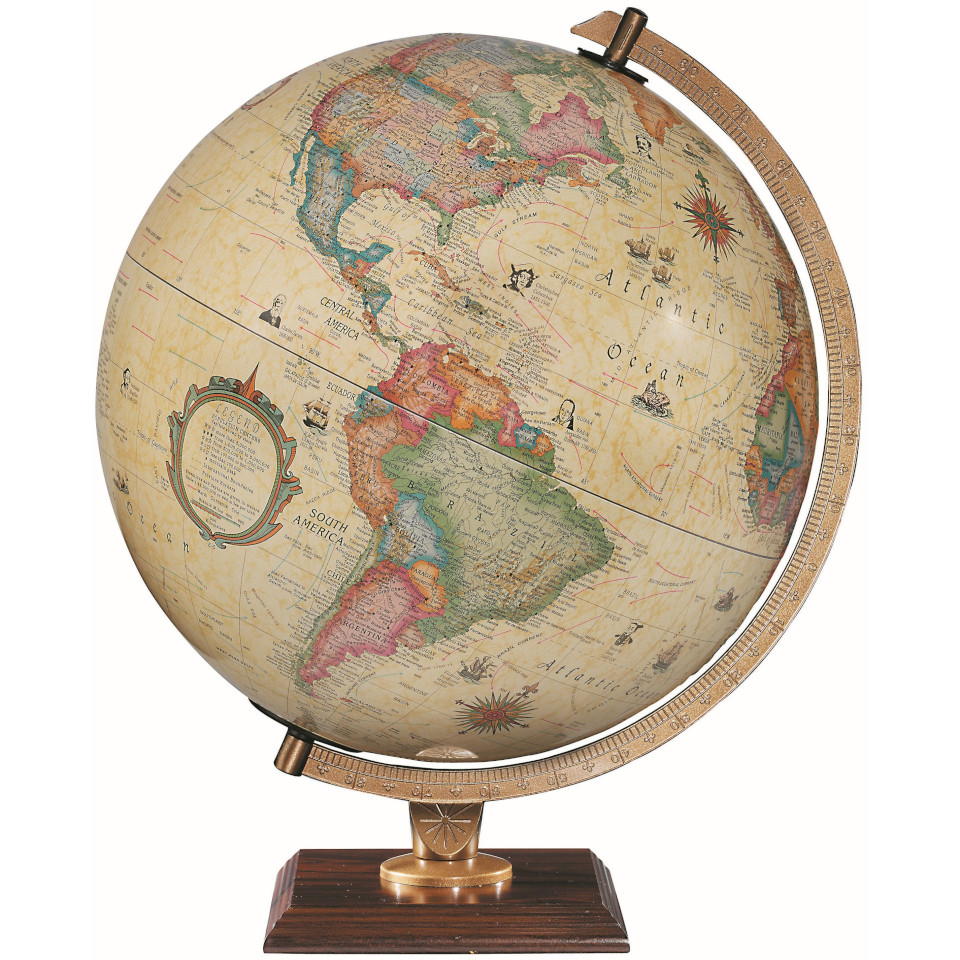
In the antique globes category, you will find beautiful antique-effect globes with a current map image. They are a reminder of old, almost forgotten world maps. Often, ancient symbols such as compass roses, mythical creatures or ships form part of the map image. Antique globes are ideal as ornaments, as they give any room a very special vintage character.
Antique globes are available both in illuminated and unilluminated forms. The globes’ sizes also vary, ranging from antique miniature globes to large globe bars.
Celestial globe
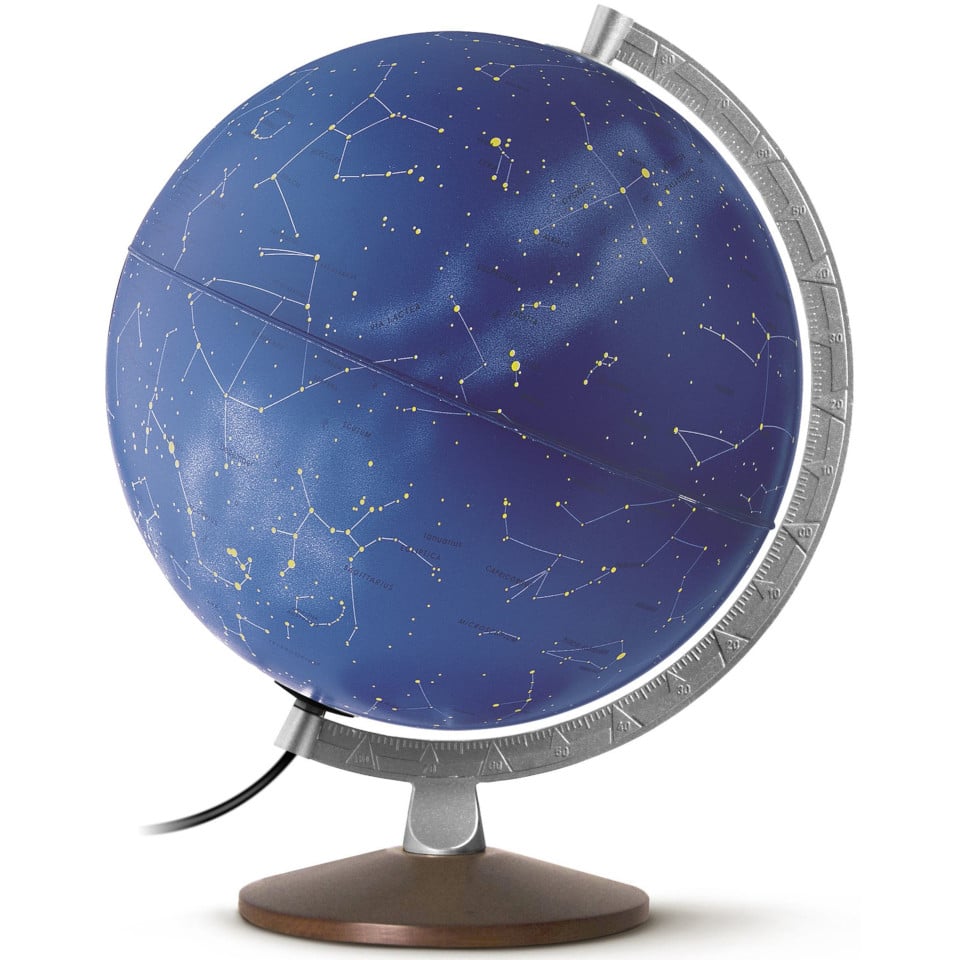
A celestial globe shows the sky surrounding the Earth and, depending on the subject area, the stars, planets and constellations. The Earth's equator corresponds to the celestial equator. Among the celestial globes are also globes which depict the planets and moons of our solar system. Celestial globes often use image data from scientific satellites that orbit our Earth. Especially when it relates to constellations, the globe offers a much better representation of the sky than, for example, a conventional star chart.
Bar globe
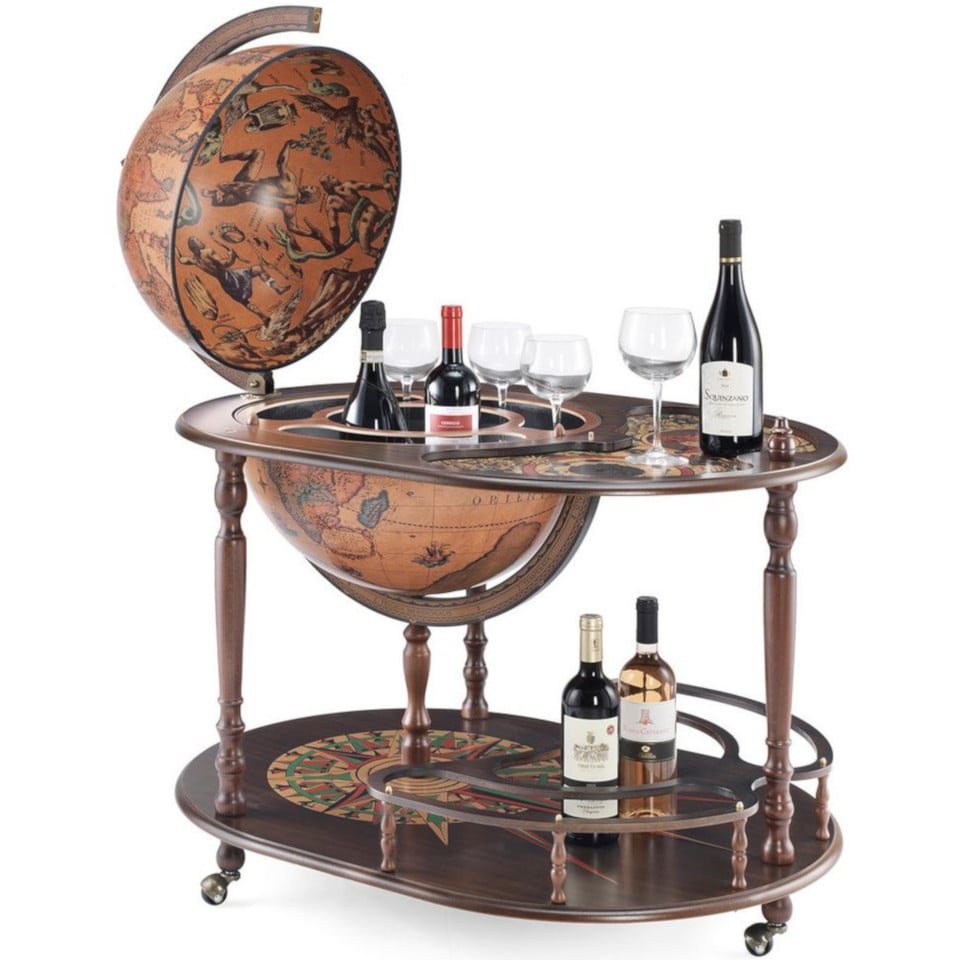
Another popular globe form in our shop is the globe bar. A globe bar is a home bar in the form of a globe, but with no cooling function. Globe bars resemble antique globes in their design, and most of them are finished with an antique look.
Spirits and glasses are stored in the lower spherical shell. The upper half of the sphere can be swung open to access the drinks. In addition, with some models, additional bottles can be stored in the globe’s foot or stand. In our range you will find a large selection of globe bars. No matter whether you are looking for a simple globe bar or a model with an integrated shelf: you will find what you’re looking for here!
Design globe
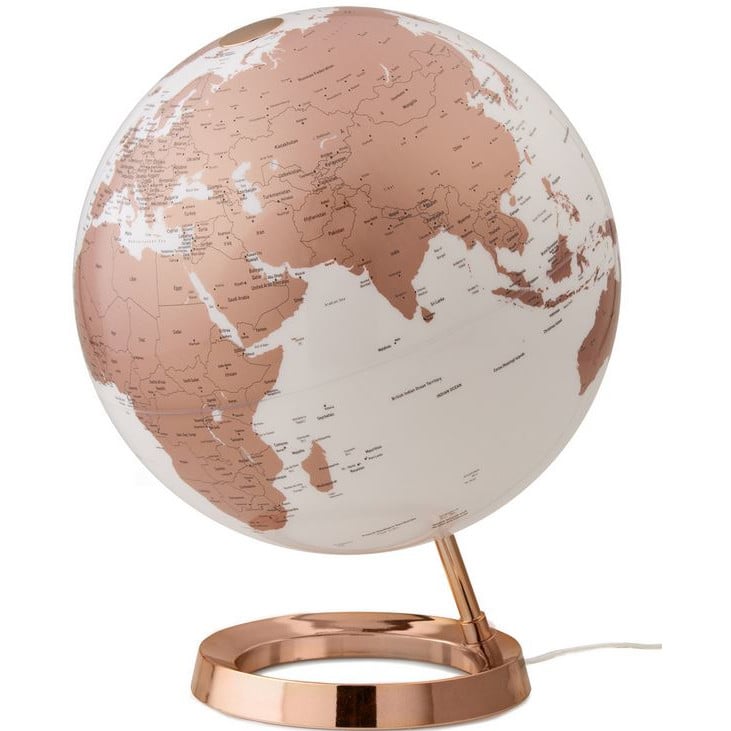
Design globes stand out from the crowd thanks to both their form and colour schemes, and are created in cooperation with successful designers. One of our bestsellers, the Räthgloben 1917 Light&Colour globe in copper, was designed in collaboration with a Danish design studio.
Here, the range of sizes and prices is huge. Everything is possible; from a small design globe for around 20 euros to models with a diameter of 100 cm for over 9.000 euros.
Electronic globe
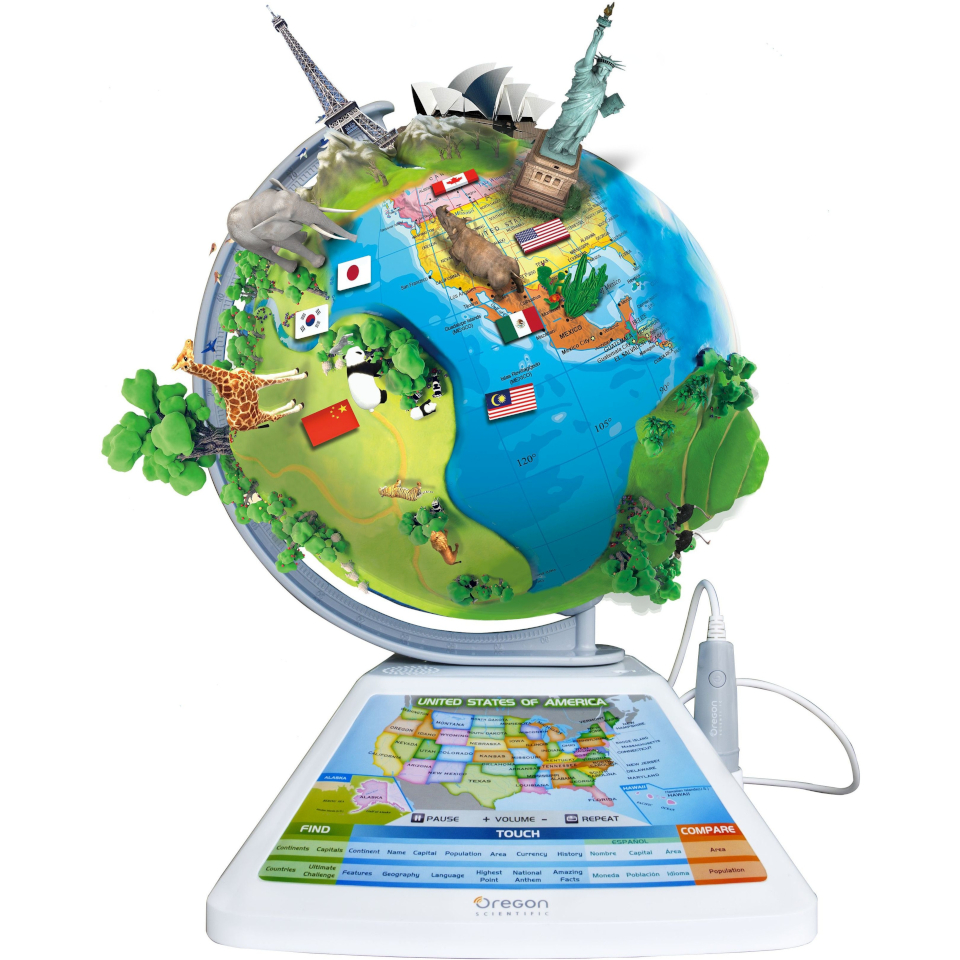
Electronic globes are unique globes with an electronic information system which provide you with extensive knowledge. For example, you can find out the local times, the number of inhabitants, distances between locations and particular sights of a country.
Thanks to augmented reality, we even have globes in our selection that display additional information via a smartphone or tablet. This takes geography to the next level!
Children's globe
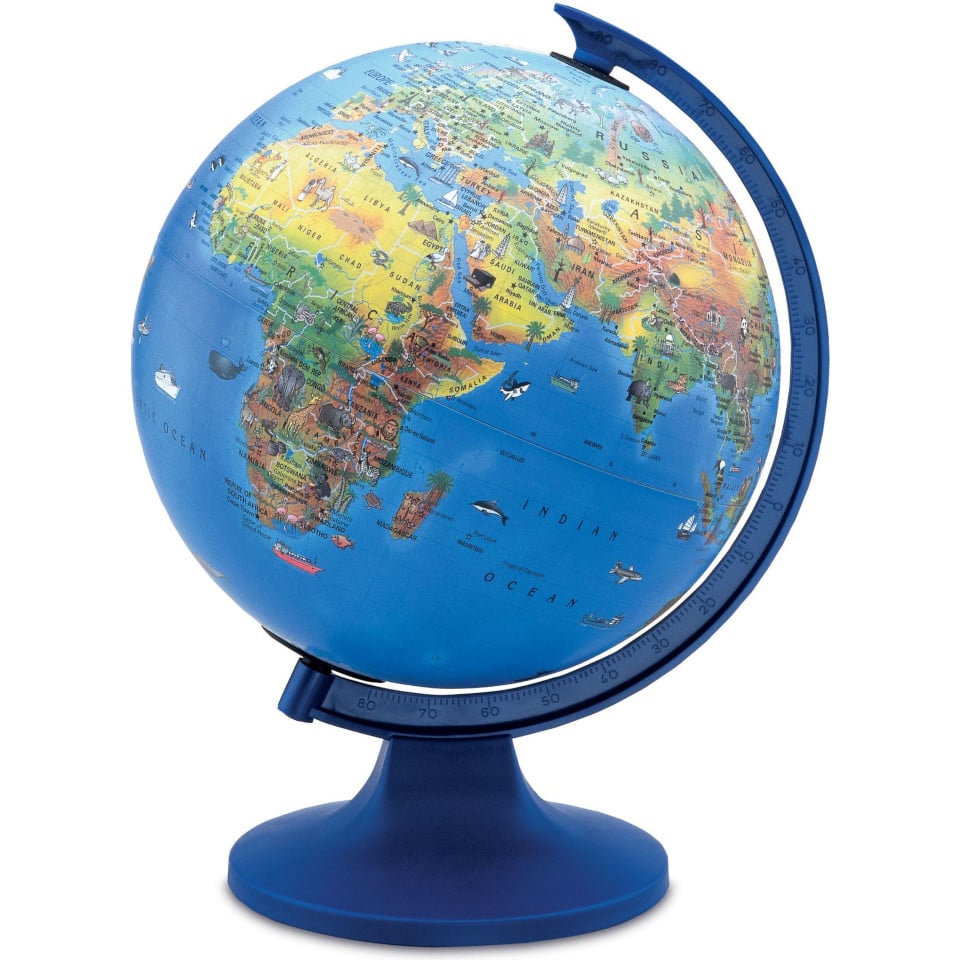
A children's globe is a particularly child-friendly sort of globe. In order to convey fun facts about our planet, we have special children's globes in our product range. Children's globes are usually really colourful and often richly illustrated with images. In this way, compelling pictures can explain the planet even to the youngest children.
While globes are usually scientifically or decoratively designed, child globes offer information especially tailored to children. For example, animal pictures on the respective continents give children information about the native animals. Children's and family globes are available in a wide variety of sizes and designs.
Especially popular are globes which can “explain” additional information to children using audio-video pens. This makes learning geography great fun!
Mini globe
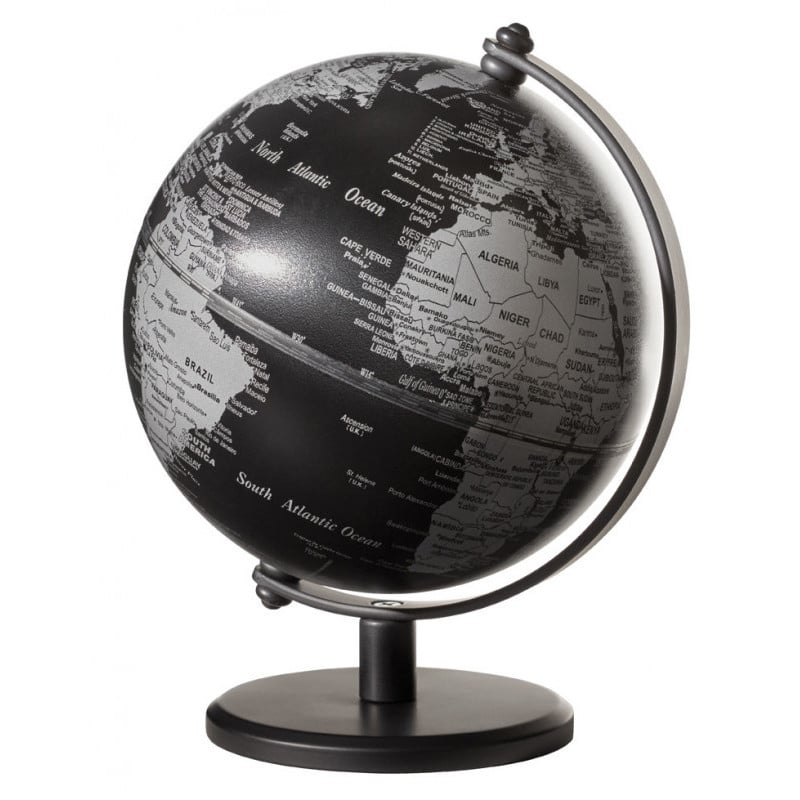
Mini globes are especially small globes. These are miniaturised versions of the standard models, which are usually only a few centimetres in size. As a rule, these globes have a diameter of less than 15cm. Mini globes serve as collectables or as small decorative gifts for travellers and globetrotters.
Outdoor globe
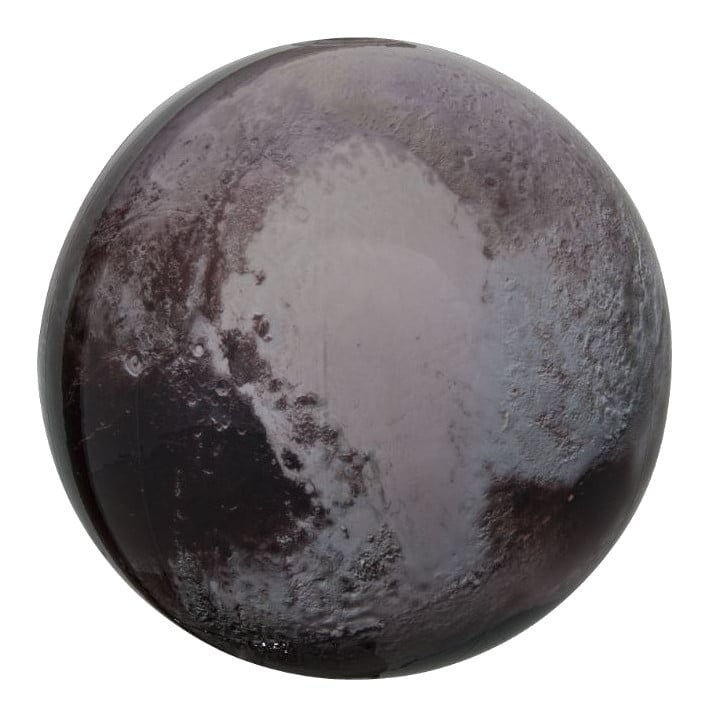
An outdoor globe is specially designed for outdoor use. Thanks to an extra seal, it is protected against the effects of the weather. Nevertheless, it is recommended to put the globe in storage in winter, when the temperature is extremely low.
Raised relief globe
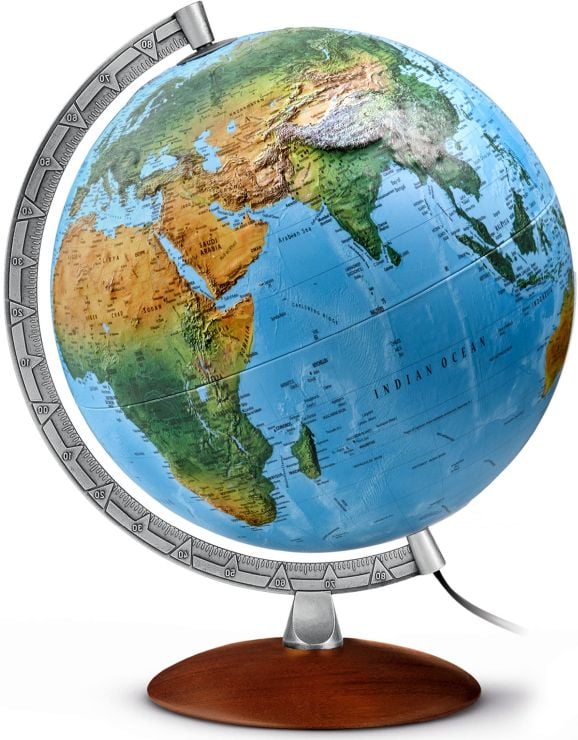
Raised relief globes can be found scattered throughout the subcategories. A raised relief globe reflects altitude differences and the Earth’s surface shapes with the help of a touchable relief. While most globes have a smooth surface, raised relief globes have a three-dimensional surface finish. Mountains and valleys, both on land and in the sea, are nicely illustrated by the globe.
Floating globe
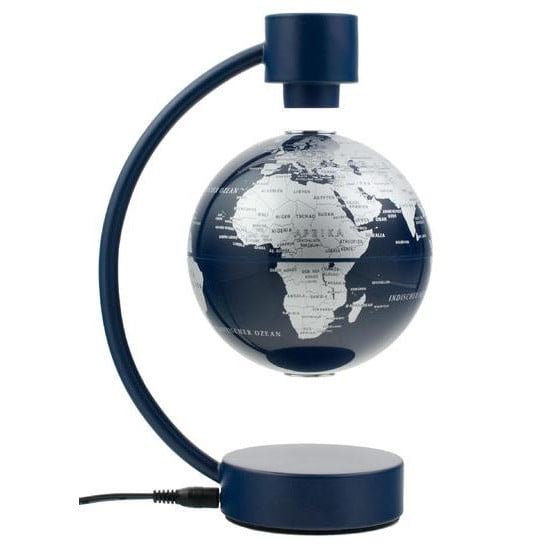
The floating globe is an impressive high-tech device. A floating globe uses magnetic forces to let it float freely between two poles. A magnetic field sensor continuously measures the floating height of the globe. The sensor and the electronics in the foot regulate an electromagnet in the upper part of the frame, and thus control the distance between the globe and the magnetic pole. An additional permanent magnet holds the globe securely in the frame when the magnet is switched off. As a result, floating globes are not fixed along the meridian like conventional globes.
A floating globe will guarantee admiring glances from your visitors!
Day and night globe
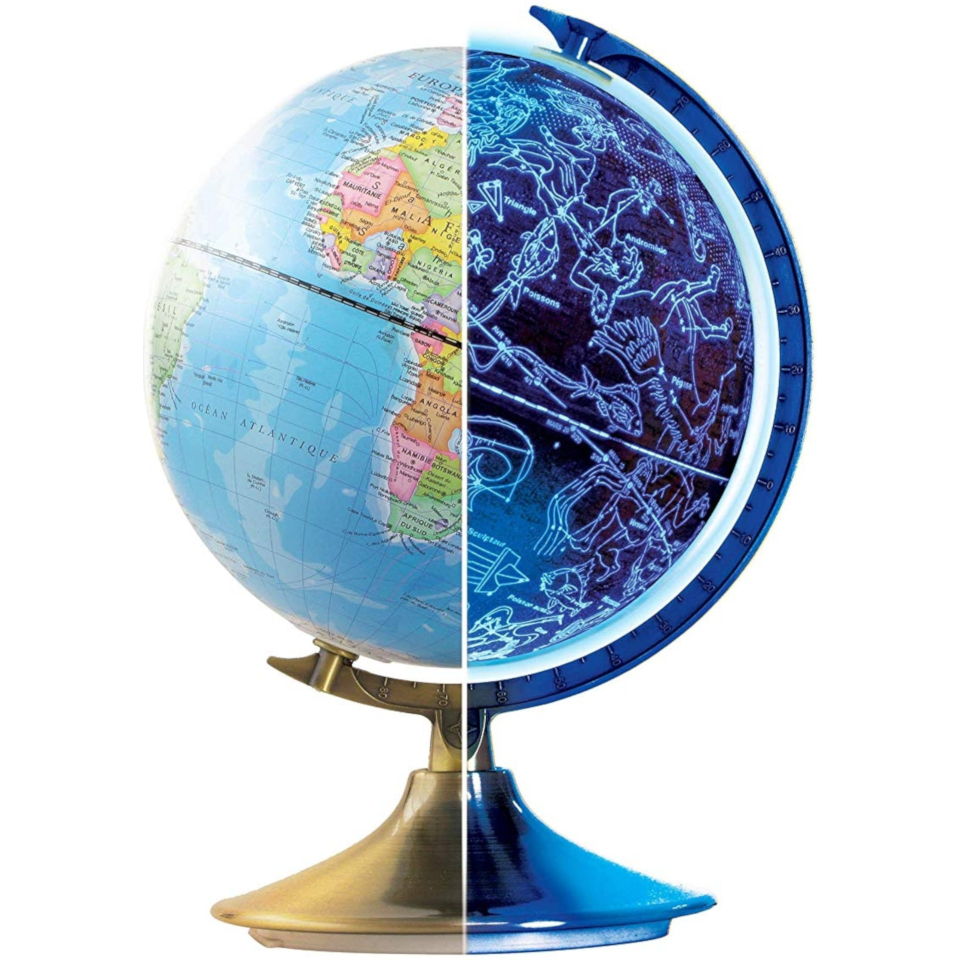
With a day and night globe, the change from day to night is brilliantly illustrated. In addition, these globes can be illuminated to display star signs or constellations. Day and night globes are therefore also ideal for use as night lights.
Illuminated globe
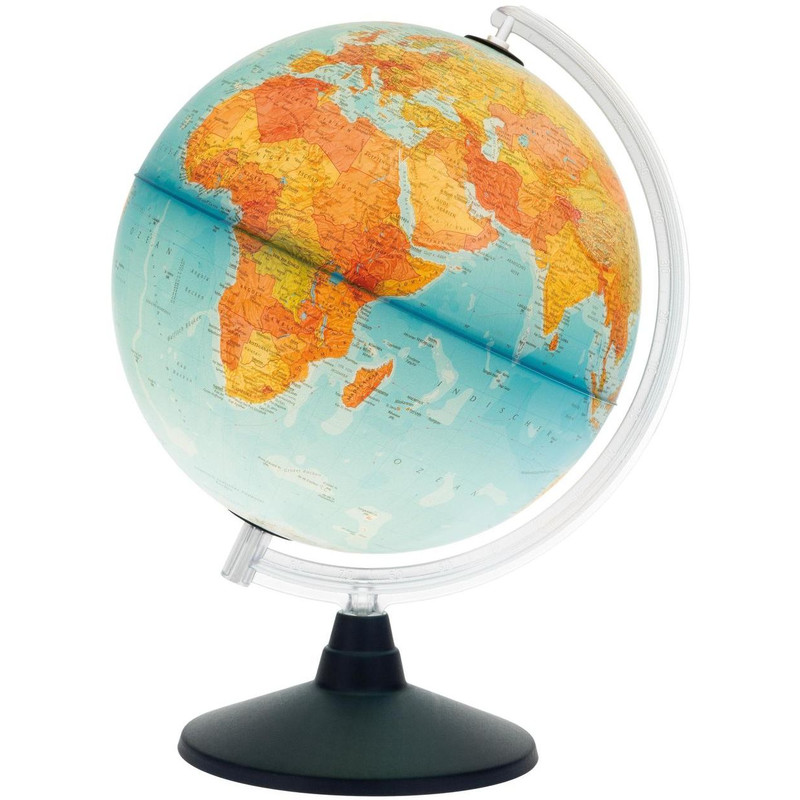
The illuminated globe is, exactly as the name describes, a globe with lighting. Illuminated globes are very popular, especially because of the useful two-image functionality. The globe displays either a political map image when unlit and a physical map image when illuminated, or vice versa. You can filter for this property in our shop by using the navigation panel on the left.
What is an integrated cable guide?
The cable for the sphere's illumination conventionally exits the globe at the level of the south pole (external cable guide), which is optically and practically a drawback. For this reason, most illuminated globes have an integrated cable guide, whereby the cable is routed unseen through the meridian and the foot.
What is meant by relief shading?
Relief shading describes the shading with which, for example, the structures of the Earth's surface are represented in physical maps. Relief shading is a method by which, using graphical techniques, the surface structure of the Earth can be visualised in three dimensions. With a north-west illumination, north-westerly increases in terrain height (elevations, mountains) are shown with light shading, and south-easterly increases with dark shading. In a mountainous region such as the Alps, the brain immediately recognises the correct position of the mountains and valleys due to the zones of light and shade, and the transition from one to the other. This gives the terrain a three-dimensional effect.
I have problems getting the globe to float.
When you start out it can seem really difficult to make the globe float. But once you get the hang of it, you can do it within a few seconds. Please keep trying, you’ll definitely manage it soon!
A few practical tips:
Pick up the globe with both hands, holding the lower hemisphere with the thumb and index finger of each hand.
Up to a certain height, the magnets will not react, but the sensors with LEDs will have already recognised the globe thanks to the integrated magnet. Now try to centre the globe, and slowly move it downwards until you detect that it starts to feel lighter. This is the point at which the magnets take effect.
Please do not let go of the globe immediately, instead gently loosen your grip, one finger at a time. Also, please make sure that your fingers are dry.
Don't lose patience immediately: getting the globe to float is precision work. As soon as you do it once, you'll get the hang of it.
